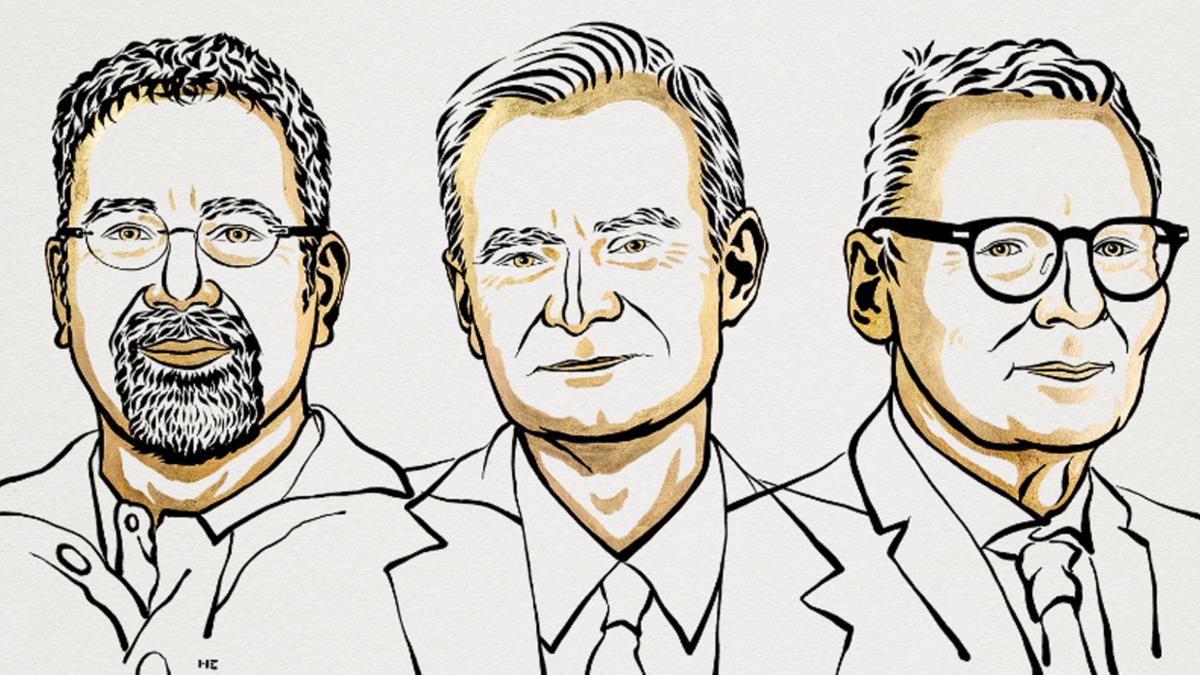- Home
- The Nobel Prize in Economics goes to Professors Acemoglu, Johnson and Robinson for their contributions to Political Economy

The Nobel Prize in Economics goes to Professors Acemoglu, Johnson and Robinson for their contributions to Political Economy
14 October 2024
The Royal Swedish Academy of Sciences has awarded the Nobel Prize in Economics to Daron Acemoglu, Simon Johnson and James Robinson for their contributions to Political Economy. The Committee of the Prize in Economic Sciences has recognised these three professors for their studies on how institutions are formed and affect a nation’s prosperity. Their approach contributes to Macroeconomics, Finance, Political Science, Organisational Economics and History, among others.
Understanding how institutions or, more broadly, organisations operate is a recurring theme in Nobel Prizes in Economics. Ronald Coase won it in 1991 for shedding light on the role of transaction costs and property rights within institutions and the economy. Douglas North, who shared the Nobel Prize with Fogel in 1993, was recognised for his contribution to explaining institutional change from a historical perspective. The laureates also include Ostrom, Williamson, Laffont and even Hayek.
In their most cited paper, Acemoglu, Johnson and Robinson highlight the presence of institutional topics in the research of Nobel laureates in economics, stating that “the fact that institutions are important is not new”. It is important not to understate this contribution. The prize recognises the systematic explanation of the importance of institutions: how they resolve conflicts of interest, how they decide winners and losers and how all this affects the future of the institutions themselves, as well as economic growth and social inequality.
At this point, it is worth asking: What are institutions? A possible definition would be “the set of rules that determines citizens’ incentives”. Incentives to invest, vote, work, and devise future rules. The persistence of institutions over time is precisely one of the main issues in the contribution of Acemoglu, Johnson and Robinson. Today’s rules determine today’s distribution of economic and political power, while determining tomorrow’s institutions (and so on).
In this regard, CUNEF Universidad has been organising the Madrid Political Economy Workshop (MAPE), in which different experts study issues related to institutions, since 2018.